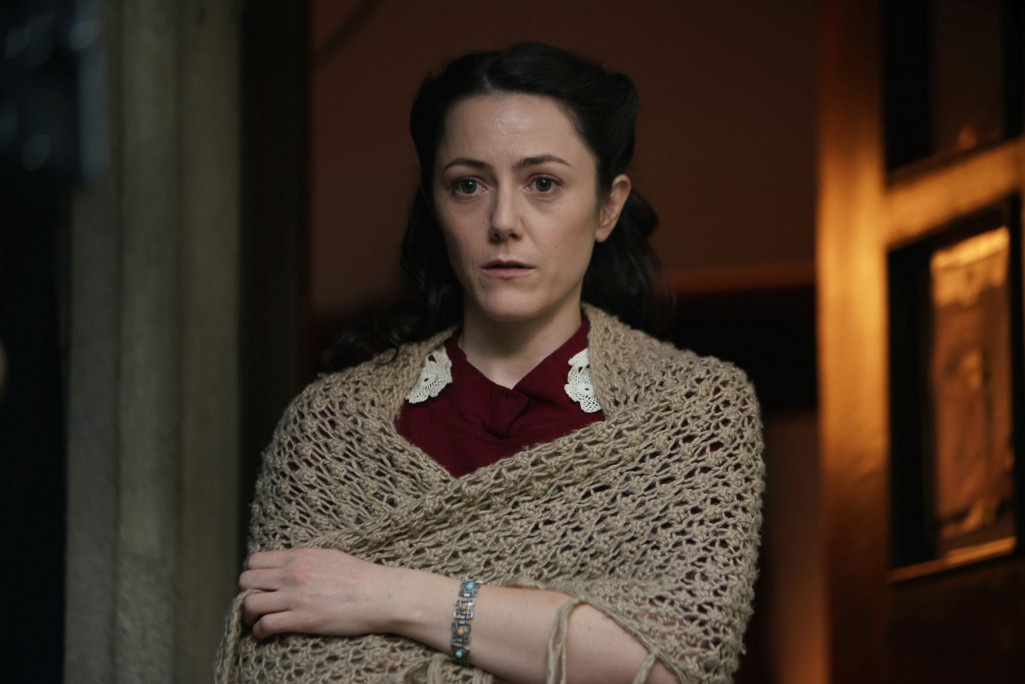The latest film by the legendary director, “Fault”, will have its special screening as part of the SIFF.
In 2025 the International Federation of Film Critics (FIPRESCI) celebrates its 100th anniversary. On this occasion, the FIPRESCI Platinum Special Award will be presented to one of the most emblematic figures of Bulgarian cinema – Professor Georgi Dyulgerov! With this recognition, he becomes the only Bulgarian filmmaker to join the star-studded company of cinematic luminaries who have been honored with this award. For the first time, the “FIPRESCI Platinum” was awarded ten years ago in Bari on the occasion of the organization’s 90th anniversary. At that time, directors such as Alan Parker, Andrzej Wajda, Margarethe von Trotta, Costa-Gavras, Ettore Scola, and Jean-Jacques Annaud received the award. Later on, over the years, the award was presented in the name of the Federation of Film Critics at several festivals around the world, including at Sofia Film Fest. Among the directors who have received the FIPRESCI Platinum in Sofia are Béla Tarr, Goran Paskaljević, Bille August, Ildikó Enyedi, and Agnieszka Hollan. Being included in this company is an outstanding recognition not only of Georgi Dyulgerov’s talent and his place in both the history and present of world cinema, but also a tribute to the achievements of Bulgarian film.
Many of Dyulgerov’s works have long been part of our national film canon. He stands out as one of the leading directors of his generation with a distinctive and singular auteur style. He is noted for his innovative dramaturgical and stylistic combinations, for experimenting and surprising with unusual directing techniques and perspectives on his characters – far removed from stereotypes and the audience’s traditional expectations. Georgi Dyulgerov is a unique combination of a renowned director and an exceptional pedagogue.
Below is the text dedicated to Professor Georgi Dyulgerov, written by film critic Professor Petia Alexandrova:
Everyone who has even the slightest idea about Bulgarian cinema knows who Georgi Dyulgerov is. With those terms—classic, legend, maestro—to which he himself is somewhat skeptical. From his substantial directorial works “Advantage” (“with this film, Bulgarian cinema stopped walking in short trousers!”, Larisa Shepitko) and “Measure for Measure” his films stand out for their significance in the development of film language, but all of Dyulgerov’s films reveal truths about ourselves through the destinies of other people, about the national psyche, about broken souls, about triumphs and failures, about betrayals and loves, about yearnings, dreams, pain, and unbridled emotions, about time—both social and personal—and many other things. Starting with his USSR diploma film “The Cooper” and his debut “Exam” (paradoxically, both based on the same story by Haytov), continuing with the innovative “And the Day came” and “Trampa”, the experiments “The Wardrobe” and “AkaDaMuS”, the unconventional documentary portraits “About Neshka Robeva and Her Girls” and “About the Girls and Their Neshka Robeva”, the nostalgic “The Camp”, and then, after the changes, arriving at the current emotional states among the marginal characters of modern times in “The Black Swallow”, “Lady Zee”, “The Goat”, encountering creative confessions in “Buffer Zone” and the socio-psychological descriptions in “Memoir of a Betrayal”.
In addition to being a director, Dyulgerov is also the screenwriter or co-screenwriter of most of his films—a true representative of auteur cinema. And we know that he has the ability to tell a story sweetly (especially through the voice of Rusi Chanev), with details, with a sense for the twist, for the nuance, for the distinctive language of a character. As a creator, he is equally talented in vision and in word. It is no accident that we once all marveled at the melodic charm and enchantment of the dialect in “Measure for Measure”, without being affected by the debates over the Enidjevardar dialect or Nayden Gerov’s vocabulary. Moreover, Dyulgerov loves cinema—not only his own films, but also those of his colleagues, his students, and world art cinema as a whole (do you remember the quotes from the great masters in “Buffer Zone”?). In addition, he is interested in history (“One of the shortcomings of my people, to which I can no longer get accustomed after so many years, is the short historical memory.”). And he tries to fill in the gaps with tales of other times, other people, other events—to speak to us profoundly about today and about us.
This edition of SIFF gives us several reasons to engage with the work of Georgi Dyulgerov. The first is the screening of his new film “Fault”, which continues his search for the roots of betrayal, this time in connection with the fate of the people from the mountains during the 1950s. The next is the premiere of the second edition of his book “Biography of My Films. Part I”, in which he tells about “the other life of a film, the one that is not captured on the tape. The life that occurs during filming, or after it. And the people involved—whether in the making of a film or in its saving, or even in its bashing.” The third is the presentation of the international FIPRESCI “Platinum” Award, with which world film critics acknowledge Dyulgerov’s undeniable contribution not only to Bulgarian cinema, but also to world cinema.
Petia Alexandrova
The special screening of Fault and the presentation of the FIPRESCI Platinum Award to Professor Georgi Dyulgerov will take place on March 15 at 20:30 at Lumiere Cinema.
***
SEE YOU AT THE #CINEMA!
#29SofiaIFF




